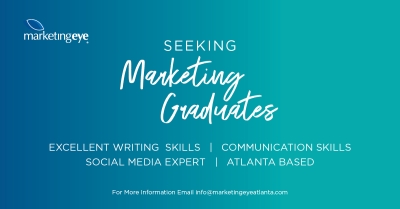Understanding Customer Retention Through Lifecycle Mapping
Customer retention is an essential objective for any business targeting sustained success and growth. One of the most effective ways to enhance customer retention rates is through a thorough understanding of the customer lifecycle. Customer lifecycle mapping is a vital tool in identifying key touchpoints and interactions that influence customer behavior. It involves a comprehensive analysis of the customer journey from initial contact through to becoming a loyal customer. Marketers need to identify the various stages in this journey and specialize their strategies accordingly to ensure continuous engagement and satisfaction.
By implementing lifecycle marketing strategies, businesses can personalize their communication, develop targeted campaigns and create meaningful interactions that resonate at each stage of the customer journey. A seamless integration of AI and advanced automation tools can further streamline this process, ensuring timely and relevant interactions. An effective mapping of the customer lifecycle provides valuable insights into customer habits, preferences and pain points, allowing marketers to optimize their strategies for better retention outcomes.
Creating Valuable Retention Content
Retention content plays a critical role in fostering long-term relationships with customers. High-quality, relevant content that addresses the needs and interests of the target audience can significantly improve customer loyalty. Content marketing strategies must be developed with the objective of providing value at each stage of the customer lifecycle. This includes educational articles, how-to guides, case studies and testimonials that resonate with the audience.
Using AI marketing tools such as Robotic Marketer, businesses can generate insightful content that captivates and retains their audience. Automated content generation and distribution tools can ensure that the right message reaches the right audience at the right time, making the retention process more efficient and effective. Providing consistent, valuable content keeps customers engaged and positions the brand as a trusted authority in its field.
Email and CRM Automation for Sustained Engagement
Email marketing and CRM automation are instrumental in maintaining regular communication with customers and enhancing retention rates. Automated email campaigns can deliver personalized messages, offers and updates based on customer behavior and preferences. CRM systems enable marketers to segment their audience, track customer interactions and tailor their communication strategies accordingly.
Time-efficient tools like Robotic Marketer can automate various aspects of email marketing and CRM functions, ensuring consistent engagement without manual intervention. These tools can analyze customer data to identify trends and opportunities for targeted marketing, playing a pivotal role in achieving retention goals. Implementing email and CRM automation not only simplifies marketing processes but also ensures that customers receive timely and relevant information, enhancing their overall experience with the brand.
Leveraging AI Marketing and Robotic Marketer for Retention
The integration of AI marketing techniques and tools has transformed the way businesses approach customer retention. AI-driven platforms like Robotic Marketer can analyze vast amounts of customer data to identify patterns, preferences and predictive behaviors. This allows marketers to develop more targeted and effective strategies for retaining customers.
AI marketing can help personalize customer interactions, making them more meaningful and engaging. By leveraging AI tools, businesses can predict customer needs and provide proactive solutions, improving overall satisfaction and loyalty. These advanced technologies also enable marketers to measure the success of their retention efforts accurately, providing valuable insights for continuous improvement.
Developing a Robust Marketing Strategy
An effective marketing strategy is important for improving customer retention. This involves setting clear goals, identifying target audiences and developing comprehensive plans for engaging and retaining customers. A well-defined marketing strategy ensures that all efforts are aligned with the business’s overall objectives and are directed towards achieving long-term success.
Implementing tools like Robotic Marketer can help businesses develop data-driven marketing strategies that are more likely to resonate with their audience. This includes identifying the most effective channels, content types and engagement tactics. A robust marketing strategy not only attracts new customers but also ensures that existing ones feel valued and engaged.
Enhancing Customer Experience Through Personalization
Personalization is a key factor in enhancing customer experience and improving retention rates. Customers are more likely to stay loyal to brands that understand their individual needs and preferences. Using AI and automation tools, businesses can specialize their marketing messages and offers to each customer, creating a more personalized and engaging experience.
By analyzing customer data, marketers can gain insights into purchasing behavior, preferences and pain points. This information can be used to develop personalized campaigns that resonate with individual customers. Personalization fosters a deeper connection with customers, making them more likely to remain loyal to a brand.















